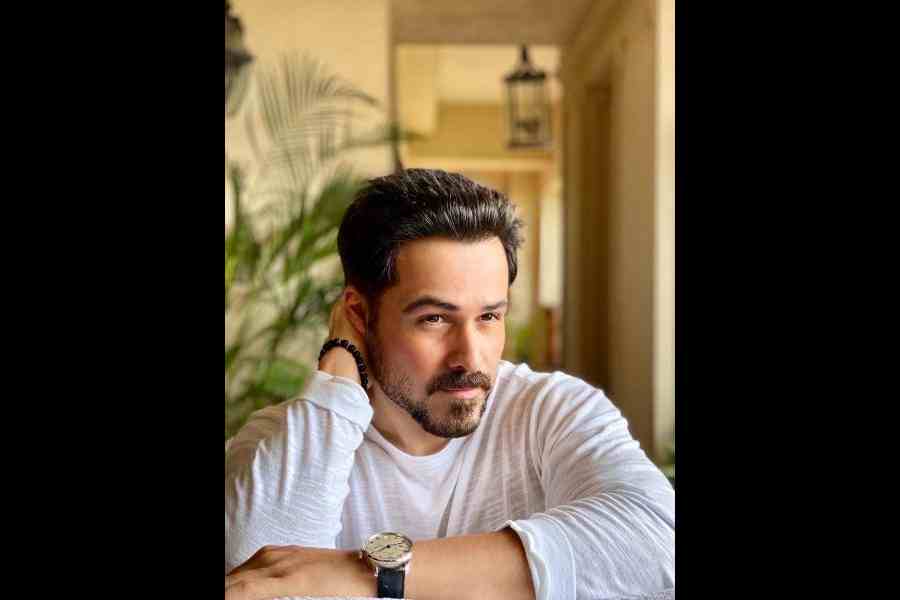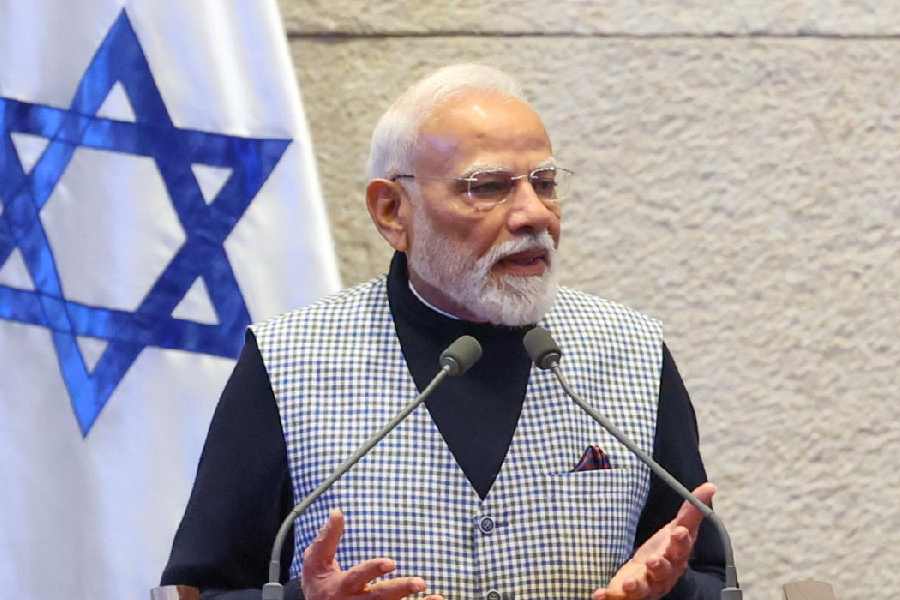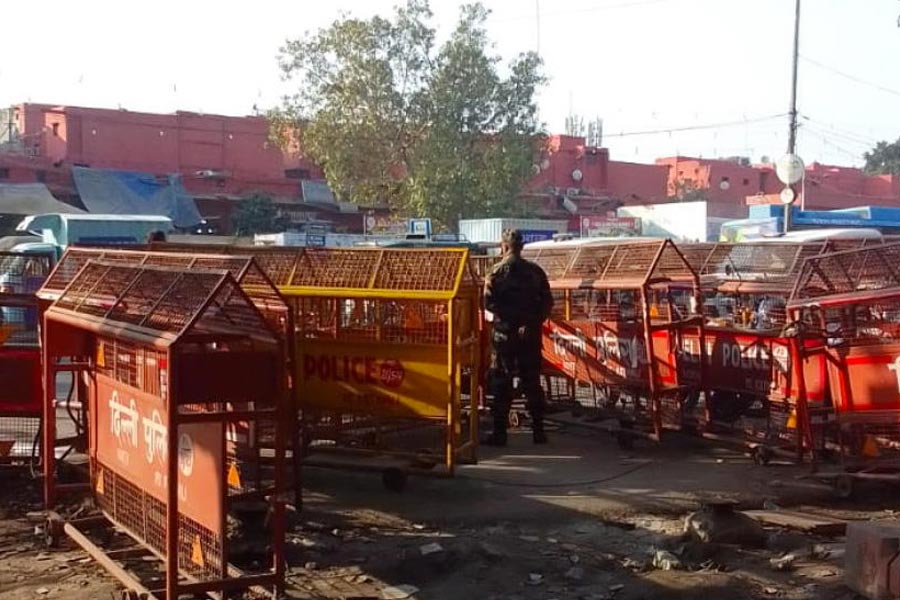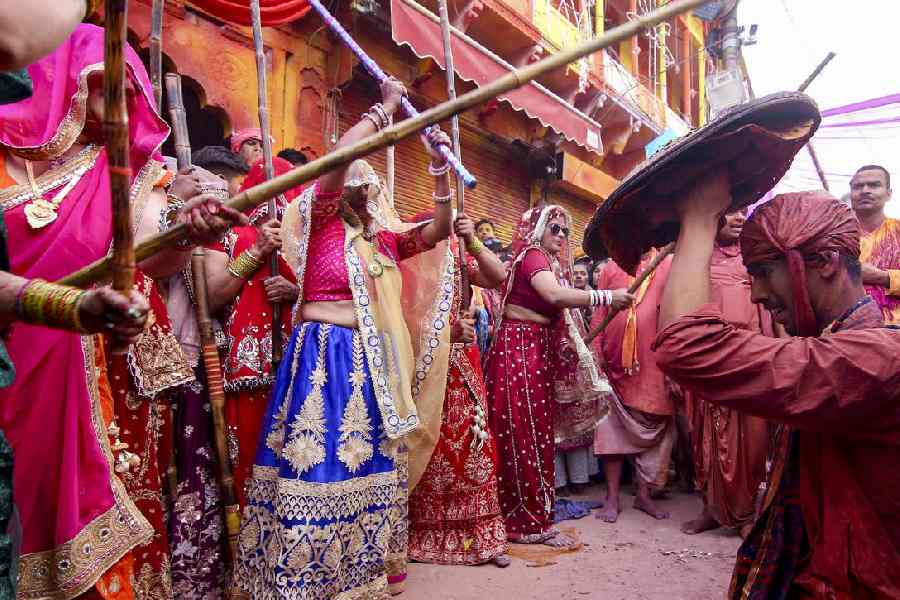Even when he has been in the middle of massy, commercial Bollywood, making everything from horror-erotica to ’80s-styled masala films, Emraan Hashmi has always given the impression of being far removed from what most of his characters embody.
Breaking into Bollywood with the 2003 film Footpath, Emraan, now 44, got tongues wagging the very next year, cavorting with Mallika Sherawat atop a parapet, and more, in the Anurag Basu-directed blockbuster Murder, the desi remake of the Hollywood film Unfaithful.
His ‘bheegey honth’ in that film earned Emraan the tag of ‘Serial Kisser’, further established in steamy films like Gangster, Aashiq Banaya Aapne, Zeher, Murder 2, Raaz 2 and so on. Most of them were box-office hits.
But Emraan’s prowess as an actor shone through even in these films, being recognised quickly by Dibakar Banerjee who cast him against type in Shanghai and Milan Luthria who gave him Once Upon a Time in Mumbaai. Since then, Emraan has consistently delivered and while a huge blockbuster has eluded him in a while, he continues to bag roles of worth.
The actor has also bucked many a trend and stereotype. He may have done scores of films with Vishesh Films, since he belongs to the family of the Bhatts (Alia Bhatt is his cousin), but the finger of nepotism has rarely been pointed at Emraan. Today, he has also successfully shed the ‘Serial Kisser’ tag, which he admits in this interview he has ‘enjoyed’ in the past.
Last year, Emraan entered the Yash Raj Films camp as the antagonist in Tiger 3 and now the actor leads a strong ensemble cast in Showtime, a web series from Karan Johar’s Dharmatic stable that looks at the goings-on in Bollywood from an insider’s perspective. It streams on Disney+Hotstar on March 8.
On the sidelines of the launch of Showtime at Taj Lands End in Mumbai recently, Emraan engaged in a freewheeling chat with t2oS on why he doesn’t believe in conforming, what keeps him authentic and the journey so far.
You play a disgruntled producer in Showtime. Most of your peers have turned producers. You did too, but not much came out of it. What went wrong?
I wasn’t a very hands-on producer. I delegated most of the work. I got the credit of a producer but I didn’t do much (smiles).
It is a tough job, right?
It is a very tough job. There was a running joke in Vishesh Films, the production company that I started with. My uncle Mukesh Bhatt, who heads it, would tell me: ‘Never sit on this chair, this is like an electric chair.’ Filmmaking is not just about writing a script and going and shooting it. There is disaster management every day on a film set because you are dealing with multiple people, egos and the nature of the business is so erratic that you don’t know which way it will go. There is a new hurdle thrown at you every day.
Your character Raghu in Showtime flips at the drop of a hat. Outside of your films, one has rarely seen you lose your temper or patience. Did playing him feel alien to you?
Raghu is ambitious. I am ambitious in an industry that I have come to know and understand over the years and still probably don’t understand many things about because it throws a curveball here and there. I share Raghu’s passion for films, his passion for a certain brand of cinema, which I have, for a large part of my career, been a part of... which is mass films. Raghu is a quintessential mass film producer. He loves seeing his films on the 70mm screen where the audience responds with ceetees and taalis. He loves fanfare and the celebratory experience and all of that.
This is a show that claims to show the underbelly of the film industry. Your producer Karan Johar has famously said he will go underground the day Showtime premieres. You are known to be pretty nonchalant about these things but did any aspect of what is going to be shown in this series worry you?
One had to be cognizant of the fact that one is an industry insider playing an industry insider. There could be assumptions made because, ultimately, it is anecdotal... it is a fictional piece. But any fictional piece is also sourced from real life. That is what gives it gravitas and offers a certain realism to the audience.
There were conversations on set when a character would be playing something and it seemed familiar (laughs). I do know that every character in the show is sourced from multiple kinds of people in the industry. But there were always these jokes thrown around. Stuff like: ‘Why don’t you start walking like this one?’ (Smiles)
But we are not taking potshots at anyone. We’re not judging a particular person. I feel it is best if a show like this comes from an insider because we know the ins and outs of the industry. People from the outside will never know what kind of closed-door conversations take place or what the hurdles and hierarchy system are. So it is best if it comes from people who have a bird’s eye view of the industry and of how things function with the whole nepotism conversation.
Who would have thought that Karan Johar would make a show that talks about nepotism?! Did that take you by surprise?
Actually, I wasn’t told about this show only from this perspective. You might pick up one or two things when you see a promo and probably take that home. Or multiple things, I don’t know. It depends on the perspective of the viewer. For me, it was the opportunity of playing this fantastic character in a world that I have lived in, celebrated, sometimes had issues with, grappled with, seen my own share of ups and downs, met my share of heroes and villains....
It was a great opportunity to play an insider because I felt that I could at least get in my body of work and I could bring in my past experiences subconsciously sometimes, sometimes deliberately.
You spoke about being ambitious. Would you say that your ambition is a little different from the conventional definition of what one expects it to be in Bollywood? We don’t see you out there lobbying for roles, being seen at the right places, placing PR-driven stories....
Despite not doing all that, I haven’t done too badly, have I? (Smiles) It has been 20 years. The question is would it be better if I was different? I don’t know. This is part of me. This is my personality. I am of a certain nature. I don’t conform to everything. I don’t fit the classic definition of a traditional Bollywood actor.
My journey has been very different. I have not succumbed to many of the things that the industry rolls out. I don’t have this grand PR plan to be always splashed in the media even when I am not doing any films.
I let my work do most of the talking. I am sometimes painfully quiet for people who feel that they want to know more about me. But I am only willing to let people in on as much as I want them to know about me.
My family is made up of extremely private people. And even I like to be out in public only for my work. Yes, you could say I am a bit of an oddball in the industry. I don’t know if there is anyone like me.
This is how I have always been. To be honest, early on in the day, I tried to bite into some of the trappings that the industry offered. And I quickly realised that it was not meant for me, that it was not my personality.
It was then that I decided that I would give 100 per cent to my projects, put in my 100 per cent for their publicity, but that I will be unavailable for constant validation beyond my films. Some actors want that. But to each their own.
Because of the fragile and unpredictable nature of the business, everyone is insecure in showbiz, or at least has been at some point. Would you say that you have risen above all these insecurities?
I don’t think you can ever rise above that basic insecurity of what is going to happen next Friday. Or when you don’t really know the eventuality of a project that you are doing. Or whether you will be accepted by the audience because one can never gauge their taste.
All you can do as a professional, as a creative person, is to give a piece of yourself and exercise your own choice in the material that you put out there. The insecure part comes in because you realise that it is not in your hands. Once it is out there in the public domain in front of a million people, you have to accept the fact that every person has a different point of view.
I don’t think any actor out there is not insecure. Of course, there are varying degrees of insecurity. I have worked with some really insecure actors who are insecure about everything (smiles). I have also worked with actors who are very secure.
I am secure about most things. What I am insecure about is the whole unpredictability aspect. But that is also the beauty of the business. That is what draws me to the business. That is why there is this mysterious enigmatic quality of our industry. You don’t completely know what is going to happen. There is an element of allure in that.
For many years, you were Bollywood’s resident ‘Serial Kisser’. It is a tag you have worn easily and even when you did those kind of films, you simultaneously came to be known as a serious actor with films like Shanghai and Once Upon a Time in Mumbaai. How did you achieve that balance?
I quite enjoyed the ‘Serial Kisser’ tag because I was reaping the benefits (smiles). I was too young, too brash, too impulsive and going with the flow. The problem began when I started feeling that I am done with this. I had reached a saturation point and every day on set felt like I was sleepwalking through my scenes. Everything felt like a variation of what I had done before. I felt like I was perceived and boxed on the basis of a certain intimate moment I had done on screen. I knew I was capable of a lot more.
But I was very thankful because right at that point, I was given films like Shanghai, Awarapan and Once Upon A Time in Mumbaai that took me out of that box. Producers and directors have constantly done that. They have been very fair to me and given me great opportunities.
Honestly, stereotyping and being put into a box is something everyone has to face at some point in their life. No actor can wish it away. It is human nature to enforce a particular label on something to understand it better.
You are known for your plain speak and you are very unapologetic about it. It makes you authentic but hasn’t it cost you to be like that, especially in this business?
There is no pretence with me. I can’t be anyone else. This is me as a personality. I have never been able to wear that mask of playing up to a certain persona off screen. You will probably never get to know some actors because they are constantly roaming around wearing a mask. Like it’s an alter ego or a character they are playing.
I am also a little envious of that, in a way (smiles). Maybe there is some kind of draw to that or they enjoy it. But I could never do that. Whenever I go out there, it is always me, my authentic self with my faults, with everything that I am... positives, negatives, idiosyncrasies, whatever. I can’t be inauthentic. I can’t be fake. That is something that goes against my grain.
Has it cost me? I don’t think so. I don’t think the industry, in any way, has been unfair because of this. In fact, people have rewarded me for it. When someone works with me, they know it will be an easy flow. They like the professionalism I bring in. That is why I think I have been able to be here for 20 years and build relationships with people.
Do negative reviews of your films affect you?
Opinions were always there... we see more of them now because of social media. But for every person who is bashing a film, there are also people who are promoting it. That way there is a balancing act with social media.
Different people perceive films in their own way. If you put me in a theatre which is showing a slapstick comedy, nine times out of 10, I will walk out hating that film. Those kind of films are not for me. I understand that there are some people who might not like my film. And I have to be okay with that. The problem arises when you feel that everyone should like your film. There is no actor who is loved by everyone, there is no film that is liked by everyone.
I do have a problem with some of these self-proclaimed critics on social media. Sometimes for the sake of clickbait, they tend to put these videos up which say outlandish things. Stuff like: ‘The film has sunk’ or ‘It is game over for this film’. They say weird things to suck the viewers in. That is because nothing sells more than negative news. They suck you in and then you see that the review isn’t that negative, in fact it may even be positive. But everyone has their own shop to run. It has become a business for everyone. And that is why I think a bit of credibility is lost.
There are still some genuine critics but there is too much of a crowd now with these self-styled ones. Who do you read? It is a paradox of choice. When you have got so much, you don’t pay attention to anything. Then you only depend on word of mouth. That has become the most important thing.
What do you like doing when not working?
I love reading, spending time with my family. I love travelling. Generally speaking, my days are always packed because I like to involve myself in the projects that I am going to do in the future. In the last two-three years, I have obsessively inculcated a fitness routine into my lifestyle. That takes up quite a bit of my time.
From the outside, my life will seem like the most boring thing. I eat the same meals every day. I do the same things every day. I wake up, I journal, I read, I have a meeting or two. Then I watch a movie if it is an off day. When my son has his school holidays, we take off for a long holiday to the US or Canada....
We aren’t believing that! Where are your airport looks?!
(Laughs) One gets to see me once in a while when I suddenly get caught by the paps when some other celebrity is travelling. That is another kind of culture that has started which I can’t wrap my head around.
You couldn’t see much of the stars in the past and so they retained that magnetic quality. You could only buy tickets for them in theatres. Now it is different. Now you can see them everywhere.
But social media is something that you haven’t been able to shun...
I just post a picture once in a while. I try to post on a Friday. It is like a film release (smiles). Earlier, it would only be work-related posts. Slowly, I have started putting up personal stuff because I was told: ‘Your fans would like to see a little more of you and your life.’
But I am a little cautious about that. I don’t like to spew everything out. There are some actors who, right from the time the day starts, are constantly uploading stuff. I am very contained with how I use it.
Is there a recent film experience that you cherish?
I liked doing Chehre (2021). The chance to work with Mr (Amitabh) Bachchan was a big reason why I did that film. I wanted to see how he conducts himself on set. I have been a big fan of his for so many years. His character and mine had conflicts and I had to say some nasty things to him which I felt really bad about (smiles).
My mother used to work at Searock hotel in Bandstand. I was two when Mr Bachchan came one day and pinched my cheeks. And 40 years later, I worked with him in a film. It was a truly surreal experience. Life came full circle for me.











